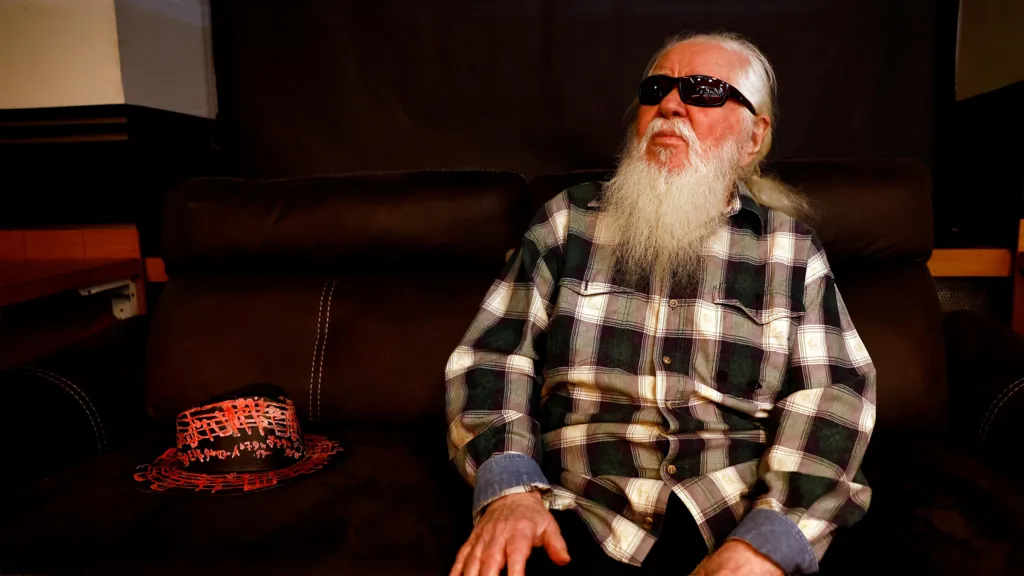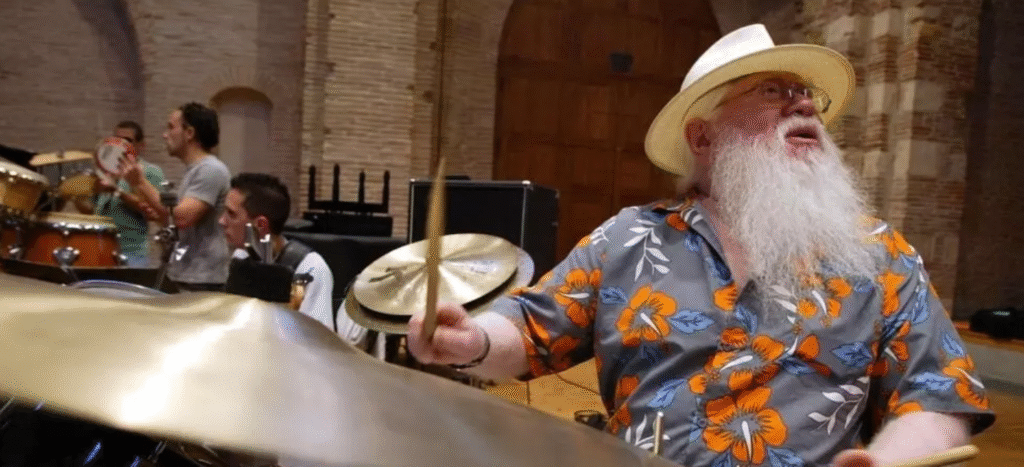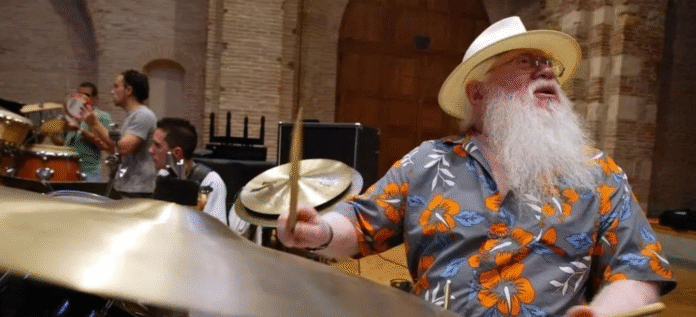Hermeto Pascoal Brazilian Music Legend Dies at 89
The world of music is mourning the death of Hermeto Pascoal Brazilian music legend, a man often described as “the wizard” of sound. Known for his experimental approach, ability to play countless instruments, and blending of Brazilian folk with jazz, Pascoal died at the age of 89.
He was surrounded by family and fellow musicians at the time of his passing, according to a statement shared by his relatives. Though the details of his death remain private, the impact of his departure is being felt worldwide.

Early Life of Hermeto Pascoal Brazilian Music Genius
Born on June 22, 1936, in a rural village in Alagoas, northeast Brazil, Hermeto Pascoal grew up in poverty. Because of albinism, he couldn’t work outdoors like other children. Instead, he found refuge in music, teaching himself to play instruments while spending long hours indoors.
By the age of 10, Pascoal was already performing at community dances and weddings. His natural talent made him a sought-after musician in local forró and chorinho circles. These early experiences laid the foundation for what would become a groundbreaking career in Hermeto Pascoal Brazilian music.
Hermeto Pascoal Brazilian Music Career Takes Off
In the late 1950s, Pascoal moved to Rio de Janeiro. The bustling city introduced him to Brazil’s jazz scene, where he played in nightclubs and radio orchestras. His unusual style, blending folk traditions with modern improvisation, quickly set him apart.
Pascoal worked with legendary Brazilian musicians such as Elis Regina and percussionist Airto Moreira. His international career gained momentum after touring the United States with Moreira, where he was introduced to jazz icon Miles Davis.
Miles Davis, famously hard to impress, called Pascoal “the most important musician on the planet.” Such recognition elevated the Hermeto Pascoal Brazilian music story onto the global stage.
The Wizard of Hermeto Pascoal Brazilian Music
Pascoal wasn’t just a pianist or flutist, he was a multi-instrumentalist with an unquenchable thirst for creativity. Over his lifetime, he mastered the saxophone, accordion, guitar, and drums. But he didn’t stop there.
Known for his playful imagination, Pascoal often incorporated unconventional instruments—like teapots, toys, and even live animals, into his music. For his 1976 album Slaves Mass with Warner Brothers, he famously brought live pigs into the studio to produce never-before-heard sounds.
This daring style earned him the nickname “O Bruxo” (The Wizard), making him one of the most unique figures in Hermeto Pascoal Brazilian music.
Hermeto Pascoal Brazilian Music Contributions
Across his career, Pascoal composed more than 2,000 instrumental pieces. He continued to write, arrange, and record music well into his 80s, showing that his creativity never slowed down.
Although widely celebrated in jazz circles, Pascoal refused to be boxed into the “jazz musician” label. He often reminded fans that his sound drew equally from Brazilian traditions like samba, forró, and chorinho.
“When they think I am doing one thing, I am already doing something else,” Pascoal told Jazz World in 2022. “It’s very liquid.”
That fluidity remains one of the hallmarks of Hermeto Pascoal Brazilian music, ever-changing, undefinable, and magical.
Global Recognition of Hermeto Pascoal Brazilian Music
Pascoal’s influence reached far beyond Brazil. He inspired musicians across the globe, many of whom were fascinated by his fearless use of improvisation and everyday sounds. His collaborations with international stars, including Miles Davis, cemented his place among the world’s musical legends.
Yet, despite global recognition, Pascoal always stayed connected to his roots. His music celebrated Brazilian identity while pushing artistic boundaries.

Family’s Tribute to Hermeto Pascoal Brazilian Music Legend
Pascoal’s family confirmed his passing through Instagram, urging fans to honor his memory in a symbolic way:
They invited people “to let a single note ring, from an instrument, your voice, or even a kettle—and offer it to the universe.”
This poetic request reflects Pascoal’s lifelong philosophy that music is everywhere and belongs to everyone.
The Lasting Legacy of Hermeto Pascoal Brazilian Music
Even in death, Hermeto Pascoal’s legacy endures. His daring creativity, rejection of labels, and devotion to Brazilian roots make him an icon who will continue to inspire future generations.
For young musicians, his story is a reminder that innovation doesn’t always come from formal training but from curiosity, passion, and authenticity.
As Brazil and the world mourn, one thing is clear: the Hermeto Pascoal Brazilian music legacy is timeless.
Why Hermeto Pascoal Brazilian Music Still Matters
Pascoal’s work remains relevant because it defied genres. Today, as music becomes increasingly globalized, his approach resonates more than ever. By blending folk traditions with experimental sounds, he showed that local culture can shine on a world stage without losing its authenticity.
His life’s work reinforces the idea that music is a universal language, one that can bridge divides and spark wonder.
Conclusion: The Wizard’s Final Note
The death of Hermeto Pascoal marks the end of an era for Brazilian music. But his 89 years were filled with brilliance, originality, and boundless creativity.
Fans around the world will continue to celebrate his life by playing his compositions, sharing his stories, and keeping the magic of Hermeto Pascoal Brazilian music alive.
The wizard may be gone, but his music will forever echo across generations.

